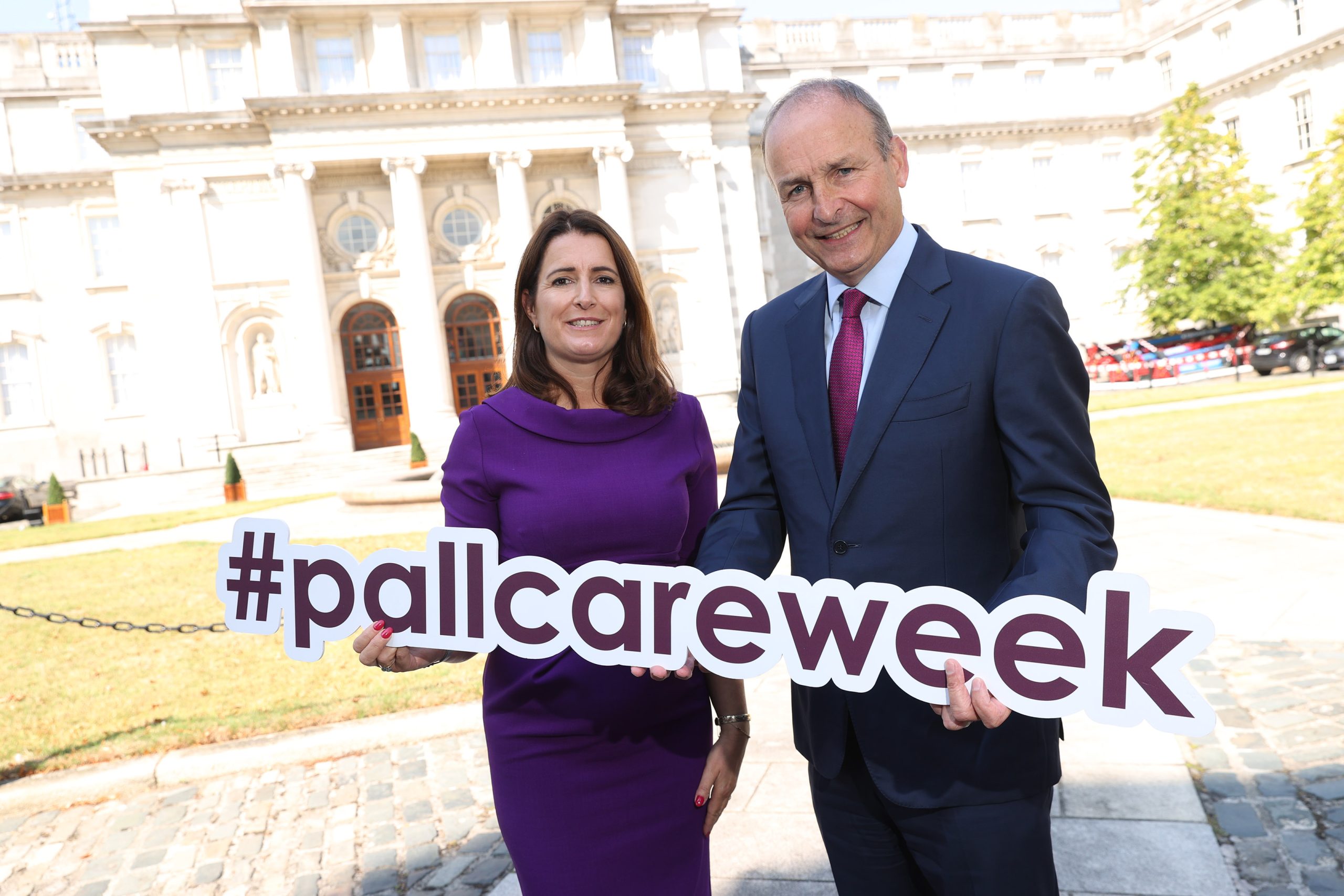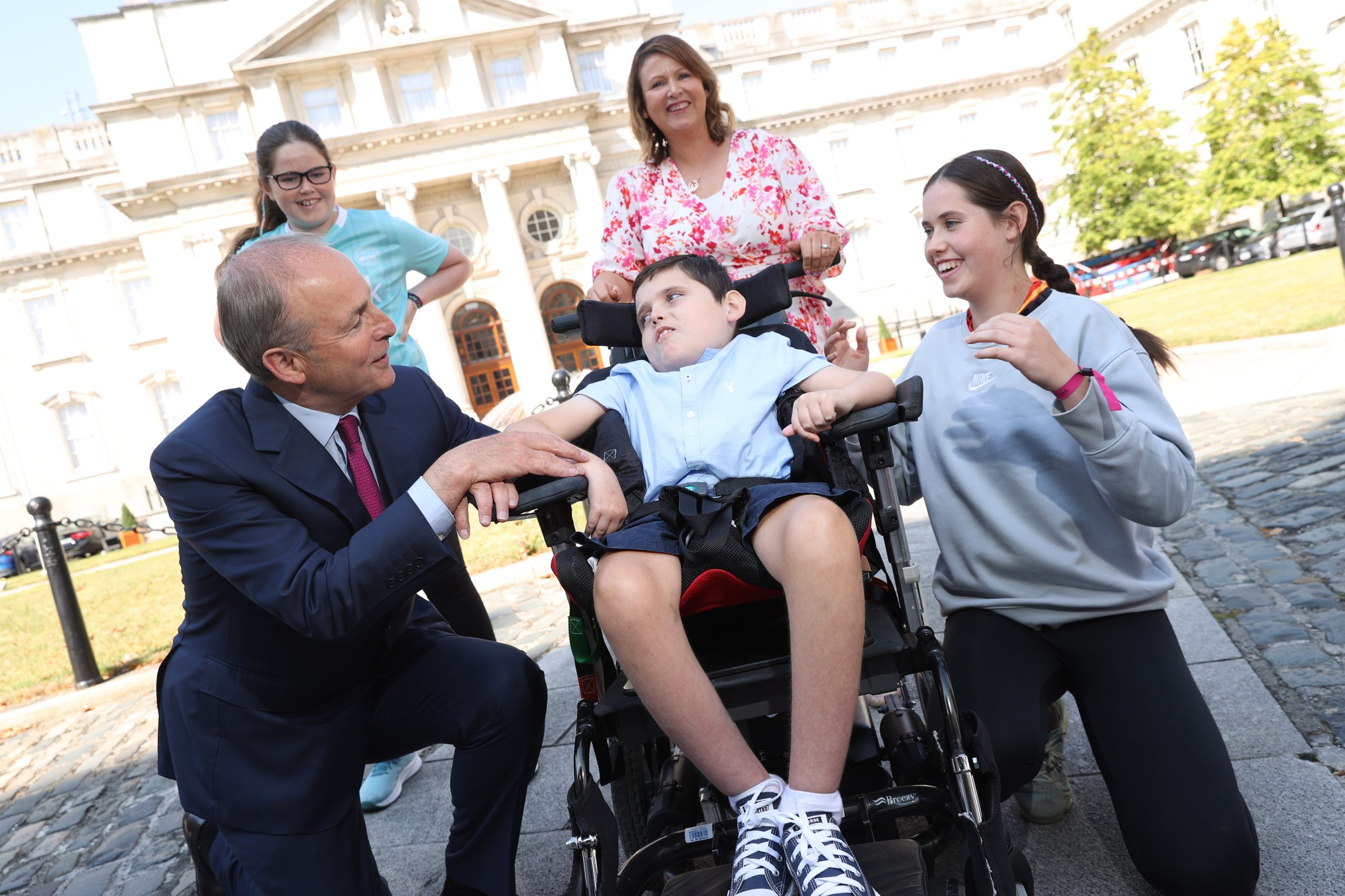- Over 75% think about end of life when they hear the term Palliative Care
43% of adults in the Republic of Ireland agree that if they needed to receive palliative care, they would not have enough information to enable them to have conversations or make decisions about their care. The finding is from a new survey of the public’s perceptions of palliative care commissioned by All Ireland Institute of Hospice and Palliative Care (AIIHPC) to highlight Palliative Care Week (11 – 17 September 2022).
The theme for the ninth annual Palliative Care Week is, ‘Palliative Care: Living as Well as Possible’ which was chosen following collaboration with AIIHPC’s members and the wider palliative care sector. It reflects what palliative care is and the positive impact that palliative care has on the lives of people with life-limiting illnesses and their families; allowing them to live their lives as fully as they can.

The survey of 1,000 people in the Republic of Ireland carried out in July 2022, also highlighted some of the perceptions that exist about palliative care:
- 43% agree that if they had to have palliative care, they do not feel ready to have those conversations or make those decisions
- 44% of people think of cancer when they hear the term palliative care
- 75% of adults agree that when they hear the term palliative care, they think that it is about supporting the quality of life for those with life limiting conditions.
- 29% of adults would be too scared to make decisions or have these conversations if they needed to receive palliative care.
Speaking ahead of Palliative Care Week 2021, An Taoiseach Micheál Martin, said:
I am delighted to support the Palliative Care Week campaign. Palliative care greatly improves the experiences of those who are living with progressive or life-limiting illness, and as this year’s theme says, can help them to live as well as possible.
It is important to emphasise that palliative care not only supports the person who is ill but it also supports family members, carers and those close to the person. This support is vital for the wellbeing of families during those challenging times. This Palliative Care Week, I want to acknowledge the work of all those who work in the palliative care sector, across the island of Ireland, in so many different roles, who constantly work to make better the lives of those in their care”.
AIIHPC Director, Karen Charnley, said:
While we are encouraged to see that most people know that palliative care is about supporting someone with a life-limiting condition, we can see how important it is that during Palliative Care Week, we continue to share information about the benefits of palliative care so that people become better informed about the supports that are available, so that they do feel comfortable to have conversations and make decisions about their care.
This Palliative Care Week, we want to encourage you to talk to your GP or any health and social care professional about palliative care or visit thepalliativehub.com for more information and advice about palliative care.
Dr Feargal Twomey, Consultant in Palliative Medicine, Milford Care Centre & UL Hospitals Group and HSE Clinical Lead for Palliative Care said:
Palliative care helps people to live as well and as fully as they can for as long as possible, despite their living with a serious life-limiting illness. Palliative care can improve quality of life and enable each person to carry on doing things that matter to them and spend important time with family.
Palliative care is for people of all ages, at all stages of illness, wherever they live, or if they are in hospital or in a hospice. Palliative care is not only for people living with cancer, but for people with motor neurone disease, dementia, advanced heart and lung disease and other progressive conditions too.
John Wall, who is receiving palliative care for his cancer, has talked about the positive impact it has had on his quality of life:
Quality of life is the single most important component for me, to successful living with an advanced cancer diagnosis. I’m extremely fortunate that as a direct result of Palliative Care intervention, mine is thankfully as good as it’s ever been. Their ability to successfully manage my pain has given me back a part of my life that I thought was lost forever, he said.
Visit thepalliativehub.com to find out more. #pallcareweek.
Notes:
- *iReach survey of 1,000 people in the Republic of Ireland conducted in July 2022
- Several individuals in receipt of palliative care are willing to share their experience with the media.
- Palliative care is delivered by a wide range health and social professionals including doctors, nurses, social workers, occupational therapists, speech and language therapists, psychologists, dieticians, chaplains and more.
- Karen Charnley, AIIHPC Director, is available for interviews
Additional Information on Palliative Care Requirements:
- Evidence suggests that between 75% and 80% of people who die have conditions that would benefit from some palliative care services, with the potential to support their quality of life for weeks, months and years.
- In Republic of Ireland, estimated 68-84% increase in people dying with a palliative care need between 2016 and 2046
- In 2021, within the Republic of Ireland,
- Just over 13,000 patients received specialist palliative care services in the community
- 78000 Clinical Nurse Specialists and staff nurse visits to patients in the year
- 3079 patients received specialist inpatient palliative care services
- Specialist palliative care (SPC) teams in acute hospitals received over 12000 referrals
- On Average 320 children per month receive care provided by the Children’s Nurse coordinators
- 450 children received SPC in a children’s hospice
- 5317 family units received SPC Bereavement services
About All Ireland Institute of Hospice and Palliative Care:
All Ireland Institute of Hospice and Palliative Care (AIIHPC) is a collaborative of hospices, health and social care organisations and universities on the island of Ireland. AIIHPC advances education, research and practice to improve the palliative care experience of people with life-limiting conditions and their families.
AIIHPC works with a group of visionary partners who recognise the value of working together to achieve a better, richer experience of palliative care for people with life-limiting conditions. The organisation’s 26 partners (15 Republic of Ireland / 11 Northern Ireland) are:
- An Roinn Sláinte / Department of Health
- Belfast Health and Social Care Trust
- Dublin City University
- Dublin University Trinity College
- Galway Hospice Foundation
- Irish Hospice Foundation
- Lauralynn Children’s Hospice
- Macmillan Cancer Support NI
- Marie Curie
- Marymount University Hospital & Hospice
- Milford Care Centre
- National University of Ireland Galway
- Northern Health and Social Care Trust
- Northern Ireland Hospice
- North West Hospice
- Our Lady’s Hospice & Care Services
- Public Health Agency
- Queen’s University Belfast
- South Eastern Health and Social Care Trust
- Southern Health and Social Care Trust
- St. Francis Hospice
- Ulster University
- University College Cork
- University College Dublin
- Waterford Institute of Technology
- Western Health and Social Care Trust
AIIHPC receives funding from a range of sources including the HSE, Department of Health (RoI), Public Health Agency, Health Research Board and the Health and Social Care R&D Division, Public Health Agency.
Help support Cork Safety Alerts by becoming a member – Click Here

